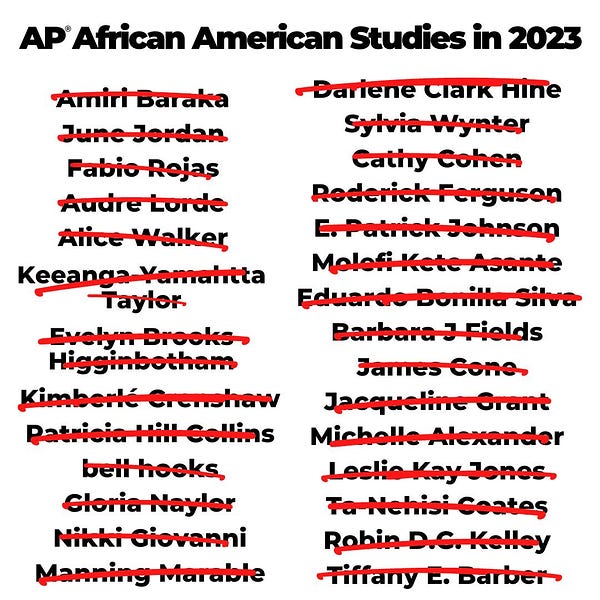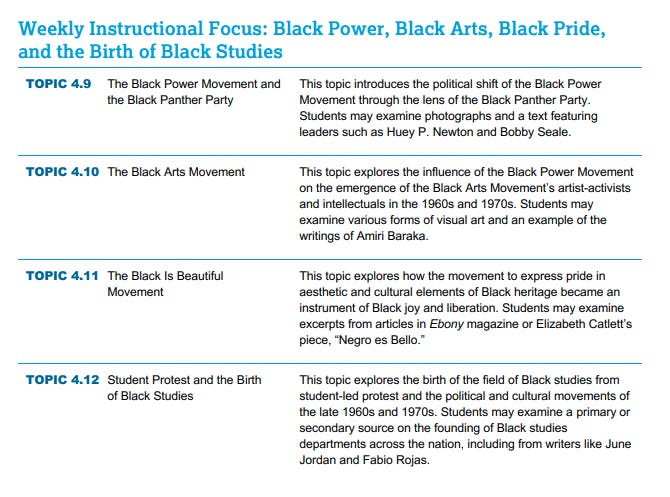In February, I learned that I was cut from a proposed curriculum for AP African American Studies. At the time, I did not know the details. All that I knew was that Professor Rooks of Brown University leaked that a number of authors had been cut after complaints from the Florida Department of Education. The ensuing controversy did not do anything to clarify things.
A few days ago, I accidentally found the original February 2022 version of the curriculum. It turns out that a news web site called The Capitolist posted this curriculum to their website. The Capitolist covers Florida state politics, so it is not surprising that they would be interested in the issue. You can see this earlier version of the curriculum here.
To get the story, download the curriculum and start on page 23. That section is titled “Unit 4: Movements and Debates.” There is not a whole lot of additional direction for teachers, but it seems that the committee that wrote the text wants teachers to choose a few extra topics and have students read a few words from authors representing that topic.
This is what appears on page 24. This section makes complete sense to me. The purpose is to have students learn about the cultural and political movements of the late 1960s an 1970s that were heavily focused on Black consciousness. I can see why more conservative readers might squirm, but this curricular guide is very slender and people can teach it in many ways (including criticisms of these movements). I don’t think the College Board was mandating any sort of radical agenda. In contrast, I would say that any review of Black history that omits these topics from the 1970s would be sorely incomplete.
First, this draft earlier explains the Rooks leak. The College Board cut this section and the person who made the meme simply listed people in order of appearance. This is why I was listed next to acclaimed poet June Jordan.
Second, three cheers for the local press. There has been a lot of contention and anger, but that doesn’t help you get the facts. I applaud The Capitolist for putting this out there. I don’t know their political orientation, but getting the facts out there is what the press should be doing.
Third, as I will explain in a forthcoming piece on another website, this fits into a larger pattern of disputes between writers and scholars in Black Studies and conservative critics. Rather then being a genuine dispute over the teaching of history, this is a fabricated dispute meant to garner political attention. The cut materials are fairly basic and teachers can frame the issues in many ways. If you showed me this draft last year, I would have said it was pretty uncontroversial.
Bottom line: The irony is that my book on political disputes over Black history has now become Black history because of a political dispute!
++++++
My books: Grad Skool Rulz - cheap advice manual for grad students / The history of Black Studies / Obama and the antiwar movement / A Social Theory book you will enjoy reading / Intro Sociology for $1 per chapter






